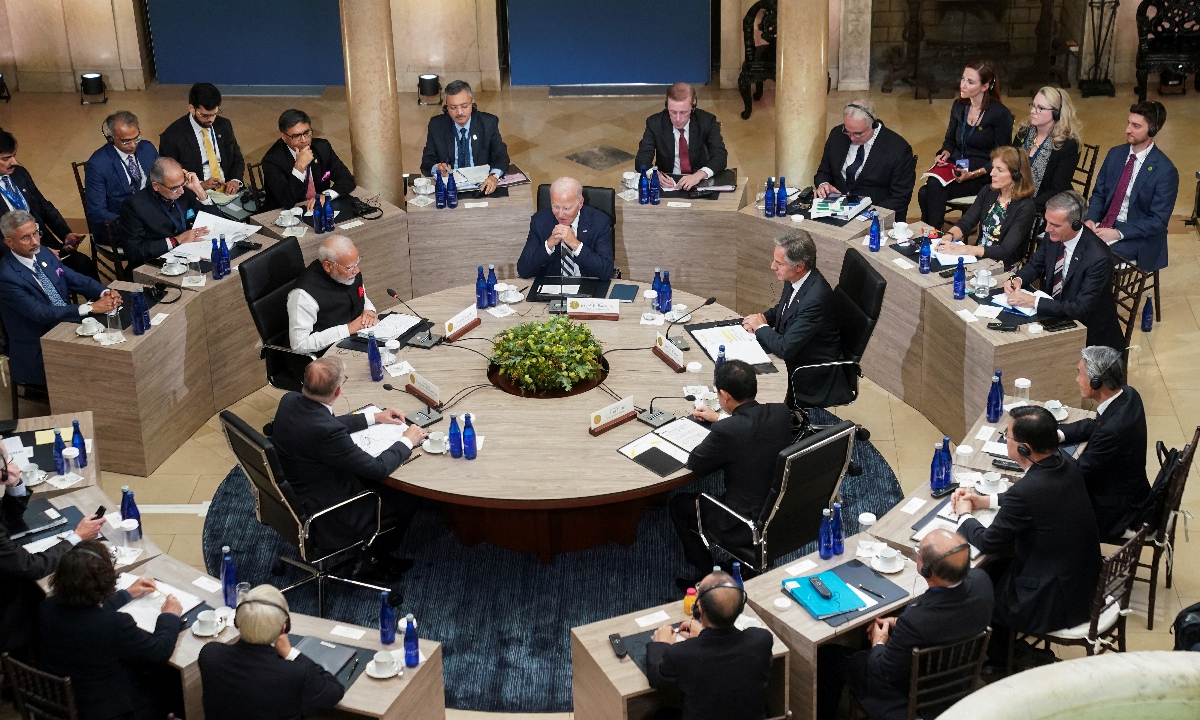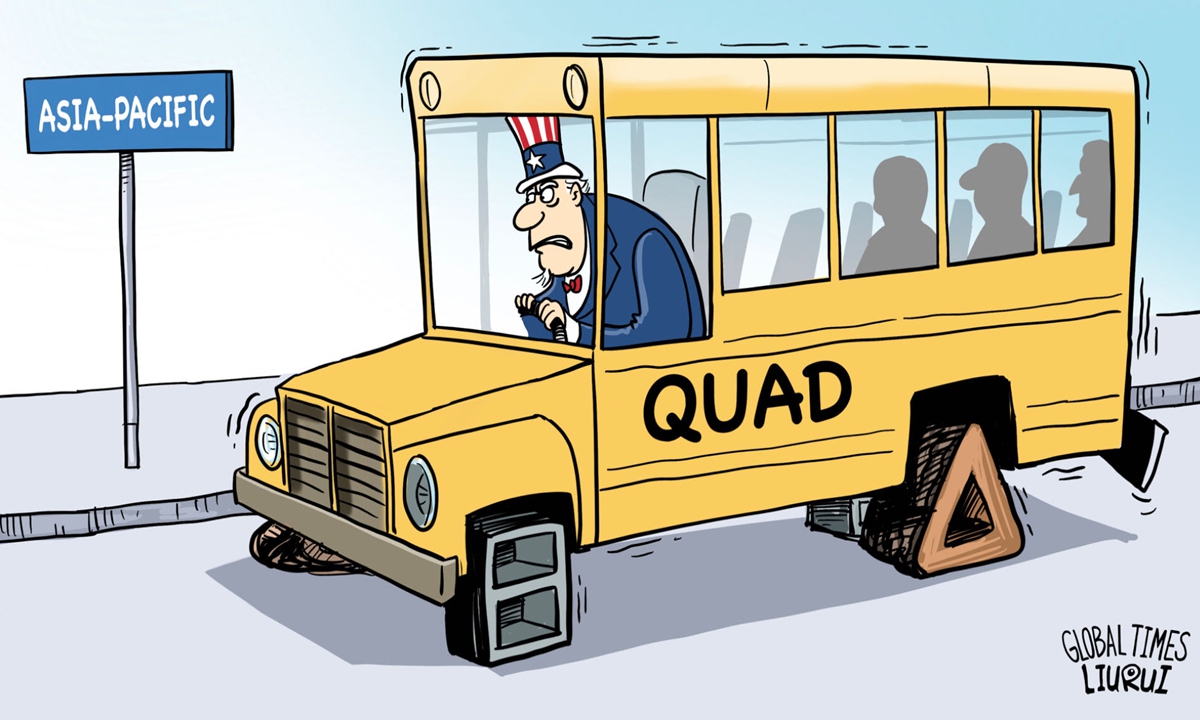
US President Joe Biden, Japanese Prime Minister Fumio Kishida, Australian Prime Minister Anthony Albanese, Indian Prime Minister Narendra Modi and US Secretary of State Antony Blinken meet at the Quad leaders' summit in Delaware, the US, on September 21, 2024 local time. Photo: IC
At the Quad leaders' summit US President Joe Biden hosted in his Delaware hometown over the weekend, the four-nation group - which consists of the US, Japan, India and Australia - agreed to expand security cooperation, including joint coast guard mission, with China on mind.
The agenda of the meeting and its joint statement, which referred to East and South China Seas, exposed Quad's nature of bloc confrontation, analysts said on Sunday, criticizing the four-nation partnership for its detrimental role of fomenting confrontation and inciting geopolitical tensions in Asia Pacific.
US national security adviser Jake Sullivan insisted earlier Saturday during a briefing with reporters that "China is not the focus of the Quad," CNN reported, but the issue (of China) featured throughout the day.
The joint statement, released on the White House's website, did not directly name China, but it did mention "East and South China Seas," meanwhile, Biden was caught on a hot mic telling the other leaders that an "aggressive China is testing us," CNN reported.
Anchored by shared values, the Quad leaders seek to uphold the international order based on the rule of law and they are "seriously concerned" about the situation in East and South China Seas, according to a joint statement after the summit.

Head to nowhere. Illustration: Liu Rui/GT
Create division Ding Duo, deputy director of the Institute of Maritime Law and Policy at the National Institute for South China Sea Studies, noted that Quad members have made efforts to downplay its focus on China, emphasizing instead the shared values and strategic interests of the four countries. However, analysis of the summit's outcomes reveals it is targeting China.
"Targeting China" is not only at a strategic level but it also involves tactical arrangements, and specific plans, Ding told the Global Times on Sunday.
Per the joint statement, the four countries have agreed on a joint coast guard mission in 2025, and vowed to enhance logistics cooperation as well as data and information sharing within and outside the bloc, giving attention to developing maritime security ties with Pacific Island Countries and Southeast Asia.
Ding pointed out that the Quad could support countries like the Philippines and Japan, which have maritime disputes with China, through specific joint maritime operations.
The Quad statement also mentioned so-called "dangerous use of coast guard and maritime militia vessels, including increasing the use of dangerous maneuvers," hinting at China's frictions with the Philippines; however, in face of Philippine provocations under US instigation, China's actions aim to safeguard its sovereignty and legitimate rights, analysts said.
The Quad has been scaremongering, inciting antagonism and confrontation, and holding back other countries' development, Chinese Foreign Ministry spokesperson Lin Jian said at a press briefing in July in response to a Quad foreign ministers meeting in Tokyo which voiced "serious concern about the situation in the East and South China Seas."
Some countries outside the region have frequently sent advanced military aircraft and vessels to the South China Sea to flex their muscles and create tension, and have formed various groupings and incited division and confrontation in the region. All of this makes them the biggest threat and challenge to regional peace and stability, Lin said.
Li Haidong, a professor at the China Foreign Affairs University, told the Global Times on Sunday that the Quad mechanism is US-led and serves as a strategic tool to favor the US in its competition with China at both regional and global levels.
Although India, Australia and Japan have their own interests, the nature and direction of this mechanism will remain aligned with the strategic needs of the US, Li said.
Biden would not give up the opportunity of his last Quad summit to hype up China issues to amplify "China threat" rhetoric, and create a wrong impression that Washington's China policy is embraced widely, Li said.
Loose partnership Although the Quad mechanism has convened meetings at different levels in the past few years and the US has strived to paint a picture of extensive and in-depth cooperation under the mechanism, "the outcomes have focused on political and diplomatic realms, being more of a posture," Ding said.
Cooperation is difficult when it comes to substantial inputs and spending of money, Ding said, adding that many of the proposals, such as joint actions and information sharing, can actually be carried out in a bilateral manner without a structure like the Quad.
Also, the obscure reference to China in the Quad statement could be the result of an internal compromise, analysts said, as members have different views on the approach to deal with China - Japan, Australia and India have intensive economic or people-to-people exchanges with China.
Different from US alliance with Japan or Australia, the Quad is a rather loose partnership, with each member aspiring to utilize the bloc to elevate their own international status, Li told the Global Times.
"It remains to be seen whether the Quad will continue to be a loose group or become a real alliance and further consolidate," Li said.





